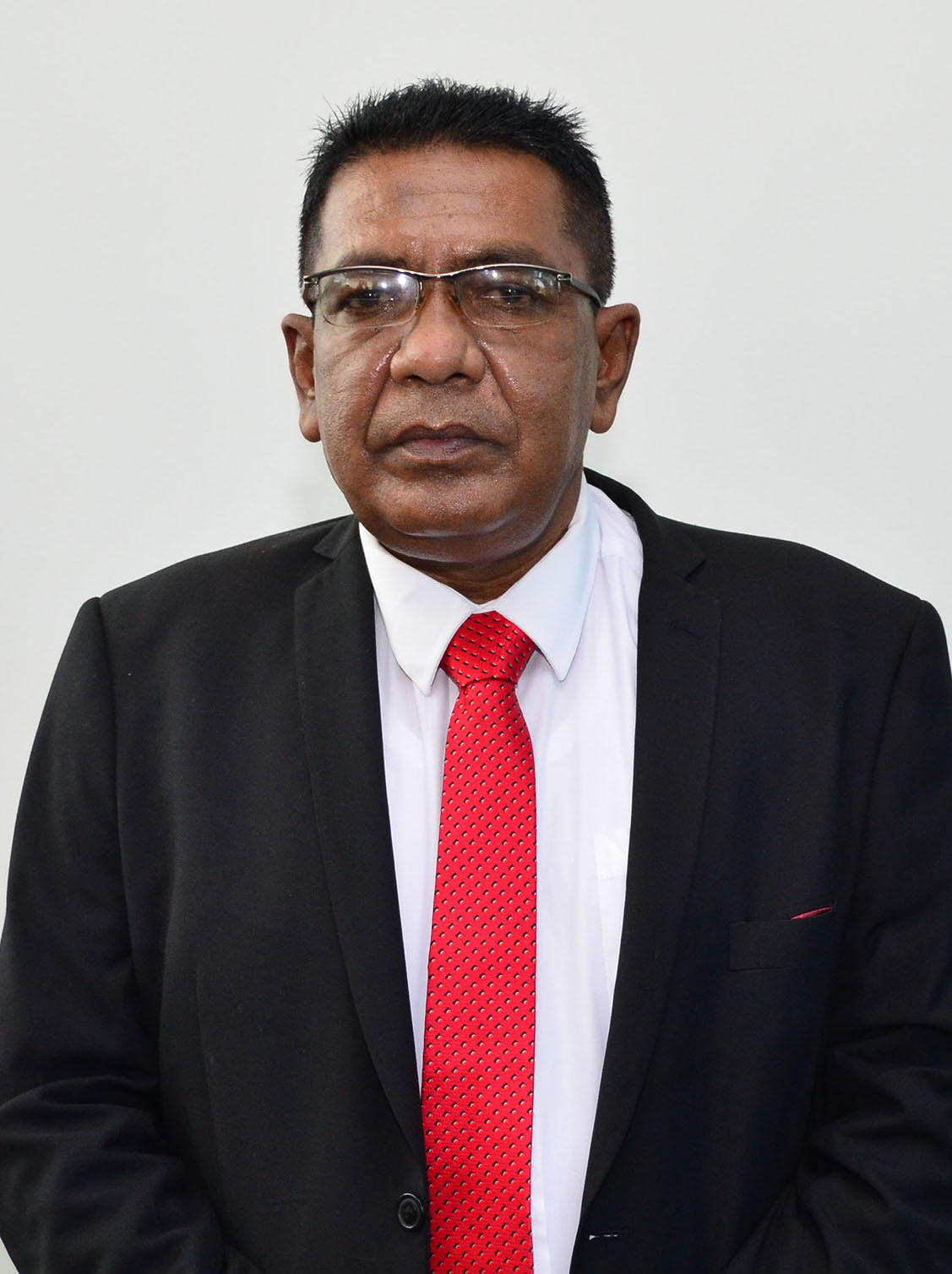Minister of Agriculture Zulfikar Mustapha yesterday promised drainage and irrigation (D&I) services to private cane farmers in the Upper Corentyne area, as he sought to encourage them to return to cane cultivation.
While promising to address the farmers’ concerns, Mustapha, who met with farmers at Skeldon and Albion, said that in the meanwhile systems can be put in place which can be beneficial to both GuySuCo and the private cane farmers. “But the main issue is to get you back into cultivation and how we should do that,” he said. “We are committed to our side of the agreement.”
He reminded that when the cane farmers were encouraged to go and start cultivation, the current government said that it would remove the corporate tax on the loans. “I want to reiterate our position that we will be keeping that end of the bargain,” he added.
Anand Singh, a private cane farmer, then questioned if it would be retroactive. “As I said we will keep that end of our bargain, that was made by the highest person of this land at that time and we will keep it, so it will be from the time you took the loan,” Mustapha responded.
Mustapha then told the cane farmers that help to return to cultivation would first come with drainage and irrigation services. “We have to do work that will help the farmers so what I intend to do and to get GuySuCo to do is to ensure that they go and start the D&I work, the D&I work that will benefit all the farmers, the canals and the dams, and things like that,” he said. “Later on we can have other discussions to look at your tillage and things like that. I am willing to continue this discussion but we must undertake today that we will start work. I will ask Guysuco to start our end of the bargain,” the minister further emphasised.
Meanwhile, a few farmers said that private cane farmers would need finance from the government, to which Mustapha responded, “Yes, we can give help but government can’t dish out cash and give every farmer. Let me be very frank, we have to look at the practicality of this thing.”
He also acknowledged that cane farmers have made a lot of sacrifices. He then told the private cane farmers gathered that they would have to work along with GuySuCo to ensure a better future for themselves and the country.
Privatisation
One private cane farmer, George Baijnauth, 75, insisted that Guysuco will have to give some sort of guarantee to farmers that the Skeldon Estate will remain open after it fully comes into operation. He told the minister that they need a guarantee that the factory will not be closed again, “and leave us stranded again, we have had our hands burnt and they were burnt severely.”
Mustapha assured those gathered, that the estates will remain open as “this time around we have to get GuySuCo moving. My main task as the Minister of Agriculture is to ensure that we come at a break-even point and then we will talk about profitability.”
Another private cane farmer spoke of the importance of privatisation. David Subnauth, 86, of Number 57 Village, Corentyne, told the minister that it is important that GuySuCo succeeds so that the private cane farmers can benefit. He suggested that cane fields be leased to private cane farmers. “If you give them a 20 acres, they would able to produce a minimum of four tonnes of sugar per acre,” he said.
According to the man, he believes, that that might be the only way the sugar industry survives, and eventually becomes profitable. “Private cane farming is very important and if we as private [farmers] can produce sugar cane and make a profit why is it GuySuCo can’t do it?” he questioned.
He then suggested that the stores at Skeldon Estate be opened to the public, including all farmers, “… meaning that they [the public] can get their supplies, fertiliser, even the rice farmers should utilise GuySuCo stores for getting fertiliser and spare parts.” Similarly, he suggested that the estate workshop be opened to the general public as well. He said the workshop must function and “make a surplus” on its own. “They can take in jobs from outside, from the private farmers… it is possible,” he advised.
Additionally, Subnauth put to the minister that in the past the management of GuySuCo “failed miserably.”
The minister expressed his agreement with the observations made concerning the management structure at GuySuCo, but assured they are still working to revamp the corporation’s management team.
“We know for a fact that over the years that management has neglected GuySuCo. We have had so much corruption and so much wastage in GuySuCo and that also contributed to the downfall of GuySuCo,” he told those gathered at Skeldon. He assured his government would ensure that there is proper management at GuySuCo which would be “responsive to the needs of the corporation – management that can deliver.”
Additionally, he said they would also be looking continuously at the performance of the persons who were appointed “temporarily,” as well as the entire managerial staff at Guysuco.
The minister noted, “You as individual cane farmers I think they will be better conditions this time, there will be better response from management this time, and you will have representation on the various scale in the management structure of GuySuCo.”
Before leaving yesterday, the minister formed a committee comprising a group of private cane farmers and GuySuCo officials who are expected to meet monthly and provide him with a report.
The farmers also requested an all-weather road in Moleson Creek, a commitment which was made previously by former president, Bharrat Jagdeo. Mustapha reiterated that he will continue to represent the issue, while noting that they may have to look at doing the road project in phases since there will be a “heavy cost.”










